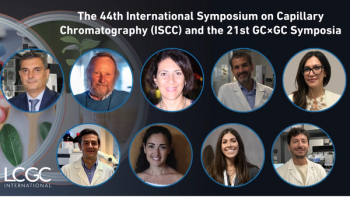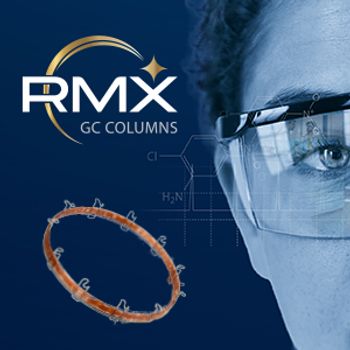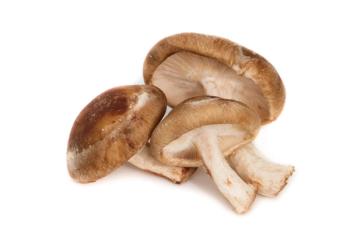
- The Column-02-22-2016
- Volume 3
- Issue 12
Highly Experienced Method Developer – Really?

Incognito offers some advice that is not to be taken lightly!
Incognito offers some advice that is not to be taken lightly!
What do you think happens when someone sees the below statements on a CV or application form?
• Broad experience in method development
• Many years method development experience
• Advanced method developer
Yes – they ask questions to substantiate them. All too often the responses are disappointing and certainly don’t help the applicant to secure the grant, bursary, job, or promotion they are seeking.
Here’s a little advice on what questions may be asked under these circumstances and how to go about answering them. Of course, if you can’t answer them, or if you don’t really have as much method development experience as you claim, you might want to think about tempering the words you use on your application, or getting more experience if possible.
Method Development Philosophy
Different application areas, different development stages within a process, differing throughput requirements, and different company cultures all influence the way in which chromatographic and mass spectrometric methods are developed and, if necessary, validated. Some development approaches involve a general screening platform with several column and eluent combinations in a shotgun approach to screen for likely conditions. Others spend a great deal of time studying the properties of the sample and the matrix to make a series of informed decisions regarding sample preparation or sampling, sample introduction, column choice, and detection type. Some folks will employ surveying techniques to explore the range of analyte and matrix component behaviour if the nature of the sample is unknown – a fundamentally different approach to the platform technique. I know several leading method development groups who define very clear and tight specifications for their desired method features and aim to meet these criteria with each decision. Obviously, your level of development experience and time served in a particular application area will greatly inform your own method development philosophy.
So – what is your personal or company development philosophy? Can you describe it succinctly along with supporting reasons? Does it vary, and if so under what circumstances?
Someone with “extensive method development experience” should be able to clearly describe their philosophy; those who have had experience troubleshooting methods, adapting methods, and transferring methods may not. These latter experiences and the associated skills are no less valuable to an employer, but should not be categorized as method development.
Sampling / Sample Preparation / Sample Introduction
The ability to consider a sample type and match this to a set of desired analytical outcomes (trace analysis of isocyanates in foams at the parts per billion [ppb] level) should lead to well defined thought processes around the requirements for specialist sampling techniques (especially when considering gas chromatography [GC]), as well as the need for sample preparation depending upon the nature of the analyte or matrix.
You should be prepared to discuss the nature of the sample preparation you believe to be necessary for the analysis and be able to justify your choice and explain the principles on which you would design your preparation protocol. This could range from the decisions you need to make for choosing sample filters, through the justification of solvents chosen for liquid extraction, to a full discussion on the choice of sorbent and each of the protocol solvents chosen for a solid-phase extraction (SPE) experiment.
If you are not ready to discuss sample preparation in granular detail – why a particular counter ion is chosen for the equilibration step of a mixed mode solid phase extraction protocol or for example why a particular QuEChERS salt is used – then you probably want to think about the way in which you describe your level of experience.
Column Choice
You would be expected to know the factors that drive selectivity mechanisms for high performance liquid chromatography (HPLC) stationary phases – both for the bonded phase and the material substrate. This would include factors such as acidity, basicity, shape selectivity, and hydrophobicity and how to recognize if a column is predominant in any of these factors. For GC columns you should know the chemical nature of the stationary phase and how one might choose and then adjust the chemistry and column dimensions.
You should be able to make a column choice based on the analyte structure and physico-chemical properties, combined with information on the method requirements. This might include the influence of analysis time, matrix complexity, number of analytes, and required detection sensitivity.
For HPLC you should be able to identify and describe the chemical attributes of various column characteristics such as those designed to work at more extreme pH, highly aqueous eluent systems, totally aqueous eluent systems, those designed to offer more retention to polar analytes, and those designed to give selectivity between polar analytes, isomers, and chemically similar analytes. You should also know the factors that cause poor efficiency or peak shape in terms of the column chemistry (particularly with reference to the substrate and chemical deactivation) and morphology.
Again, you should be able to choose a column type (and probably name!), based on the analyte structure and method requirements, and then justify your choice. If your philosophy or experience is based on a platform or toolkit approach, then you should be able to justify your choice of phases for the platform and explain why they represent the best “window” into the selectivity required for your application area.
There is no definitive right or wrong answer; it’s more about the thought process used to justify your responses and the knowledge of columns for both HPLC and GC separations.
Eluent Design and Operating Mode
This really is the key to demonstrating your ability and the level of method developer you are. From a description of the sample, the analyte properties, and the desired method goals, an experienced method developer should be able to justify a starting eluent composition or set of GC conditions and talk about how one might go about optimizing the system based on initial results.
Given some physico-chemical data regarding the analyte (vapour pressure, boiling point, LogP or LogD, and molecular weight), you should be able to make judgements regarding the suitability of an analyte for condensed or gas phase analysis and also something of the analytical conditions required. A recent question that involved the retention and separation of two analytes with very similar but very negative LogP values led to much confusion from a candidate seeking an internal promotion. An experienced method developer should be able to predict the type of HPLC column that would be used, as well as highlight some potential issues with the separation and what column characteristics or eluent design approaches may aid in resolving these issues if they occur. He or she should also be able to comment on the nature of the eluent used and any additives that may or may not help in gaining retention and selectivity for the analyte peak pair.
I would expect a good knowledge of the reasons for choosing between various solvents in reversed phase, normal phase, or hydrophilic interaction liquid chromatography (HILIC) modes in HPLC. For GC one might seek a justification for using helium over the other common carrier gases.
You should be able to describe how to perform scouting analyses and what inferences (qualitative or quantitative) can be made following such an exercise for both HPLC and GC, and describe what issues and opportunities are highlighted by the scouting chromatograms. One should also be able to describe how the initial eluent composition in HPLC might be changed to effect a better separation, and be prepared to talk about eluotropic strength, modifier choice, buffer, and pH choices as well as any other additives that may be necessary or beneficial. For GC one might describe, again with calculations where appropriate, how you might go about developing a suitable temperature programme from the initial scouting results, the operating mode for the carrier, and the inference on sample introduction or detector parameters.
You may also want to discuss your experience using computer-based optimization software, your approach to choosing the initial experiments for modelling, and how you might then subsequently use the model produced to find optimum conditions in the fewest experiments – or indeed how you might have the system do this in an automated fashion.
Optimizing an HPLC gradient or GC temperature programme profile via trial and error or “tweaking” an existing method would not make you, in my opinion, a method developer. Again, I’m not decrying these skills, they can be more useful to an employer than ab initio method development skills, but describe them accurately on your personal documentation.
Detector Choice and Optimization
You would be expected to take physical or physico-chemical attributes of an analyte and its matrix to give a commentary on what type of detection may or may not be suitable: Is the analyte chromophoric?; Does it have any features that may indicate fluorescence?; Does it contain halogenated groups?; Is the analyte ionizable?; What is the pKa?; Is it likely to form anions or cations?; Is it within the molecular range of available MS detectors?; What is the expected concentration range? All of these questions are relevant to choosing a detector and I would expect an experienced method developer to be able to make an initial detection choice and support those choices alongside possible alternatives should the initial choice not prove suitable. You should also be able to discuss the major operating variables of the detector type you choose and say how one might go about optimizing these variables depending upon the experimental outcomes during method development. Of course, if moving within a discipline this discussion may be much more straightforward; for example, in bioanalysis triple quadrupole LC coupled to mass spectrometry (MS) detectors are used extensively with multiple reaction monitoring (MRM) type spectrometric experiments. But you should know how to justify the choice of ions, the dwell time settings, how to avoid crosstalk effects, and what new detectors may be available that would offer even greater sensitivity should it be required. Even in areas where you may feel comfortable, you should expect to be asked probing questions to assess your knowledge of the important variables and their effects.
If you have optimized detector settings or undertaken detector troubleshooting then that is great, but it does not represent extensive method development experience. These things do not make you a method developer.
QbD and Method Validation
I’ve not touched upon these two topics yet – although I do think it is fair to say that they seem to hold some type of “magic key” status at the moment. I’m always interested in seeing these phrases in applications or on CV’s, but do expect to be quizzed if you note them as something you are familiar with.
What statistical packages do you use for QbD work? What is your approach to experimental design for QbD and what tools do you use to investigate and ultimately define the design and control (operating) space for the method? Have you used ranges in your specifications? Have you had regulatory questions regarding your approach?
What regulatory authorities have you validated methods for? Did you design the protocol yourself and what was your approach to the experimentation? Did you group or nest your experiments for time efficiency? Did you use statistical techniques to analyze the results? Did you use experimental design techniques for the robustness investigations? How does the validation of the method affect your method development philosophy, and what checks do you build into method development to ensure success when the method is validated?
Again, there are myriad questions which can be used to explore your knowledge and experience!
There may be readers who feel this column is somewhat pompous and decries the efforts of less experienced analytical chemists. For that I’m sorry, however, I do think there needs to be a reality check to guard against the type of blasé statements (or worse still self-belief) listed at the beginning of the piece. Maybe you might want to use the details above to act as a checklist to measure yourself up against the requirements of an “advanced” method developer. You may also think that the depth of skills described above are actually not what is required in many chromatography laboratories, and I would tend to agree with you. Specialist method developers are few and far between these days with a more generalist approach being favoured. Is this a good thing?
I also haven’t written this column to be a “bluffers guide” to getting a job or securing a grant under false pretences. Instead I want to explain the true meaning of “Highly Experienced Method Developer” and the kudos that needs to be attached to those words. They should not be written lightly and under no circumstances should claims to extensive method development experience be made without full justification, some examples of which I’ve written above.
So the next time you are completing an application consider the following types of statement:
• Some experience with optimizing sample introduction variables for sample introduction in GC
• Experience using SPE and a good understanding of the basic mechanisms
• Troubleshooting separation issues during method transfer of HPLC applications
• Experience advising analysts on the reasons for poor robustness in HPLC methods
• Troubleshooting issues with method sensitivity and optimizing detector conditions
I honestly believe you will be more respected. They set a tone that helps to define your abilities and will help you to be taken more seriously by the reader.
Articles in this issue
almost 10 years ago
Discovering the Drug Habits of Nightclubbers and Criminals Using UHPLCalmost 10 years ago
Compositional Analysis of Honeybee Venom for Proteomicsalmost 10 years ago
Vol 12 No 3 The Column February 22, 2016 Europe and Asia PDFalmost 10 years ago
Vol 12 No 3 The Column February 22, 2016 North American PDFNewsletter
Join the global community of analytical scientists who trust LCGC for insights on the latest techniques, trends, and expert solutions in chromatography.




